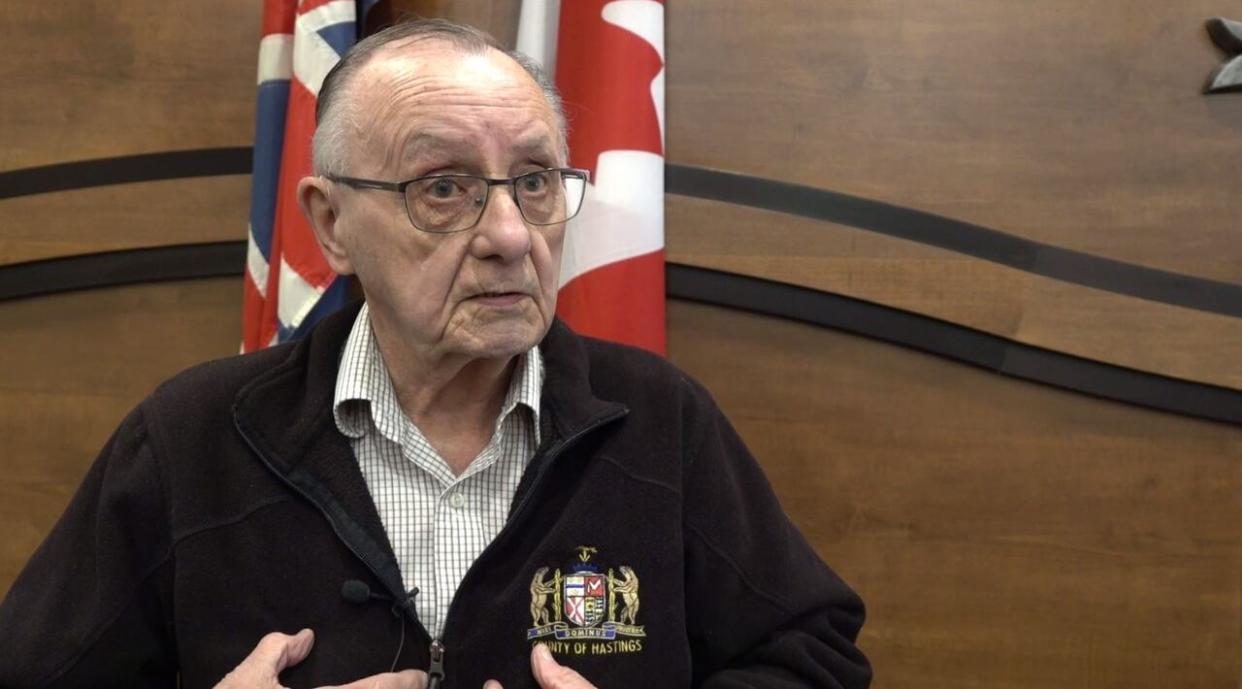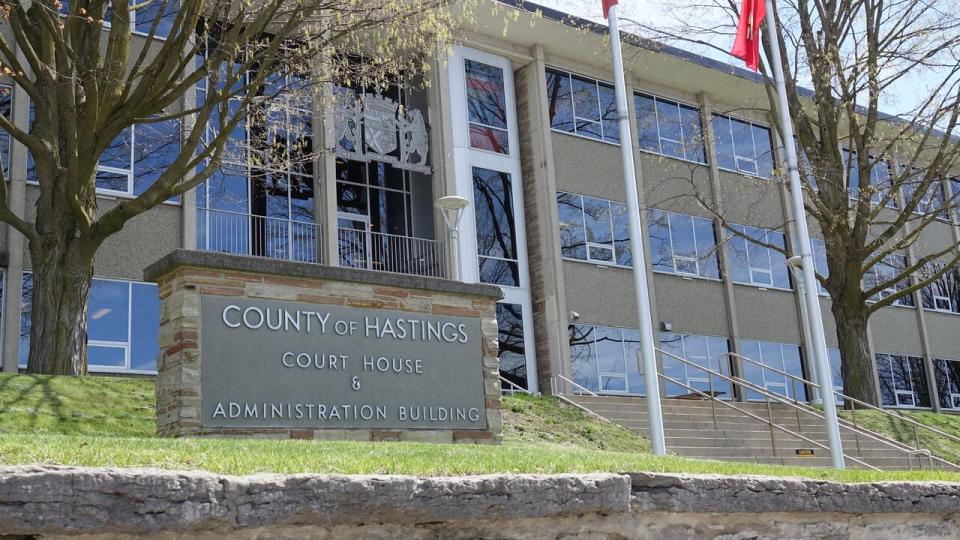Rural mayors say they can help housing crisis if given a chance — and funding

Centre Hastings Mayor Tom Deline has a message for upper levels of government: if you want to combat the housing crisis, stop focusing on forking over millions to big cities.
"Give the dollars to the small, rural communities and we'll darn well do it for you," he said.
Fellow mayors in eastern Ontario's Hastings County say getting their hands on those dollars has proved difficult, despite devoting scarce staff time and spending hundreds of thousands of dollars to apply for federal and provincial programs.
Several shared their experience following a county council meeting late last month, saying their communities can play an important role in increasing housing stock if given the chance.
The region is made up of 14 municipalities and 146,000 people scattered from the Bay of Quinte to Algonquin Park. Local leaders have also raised concerns about a lack of provincial support for their aging infrastructure.
Deline said his community of just under 5,000 people applied through the federal Housing Accelerator Fund (HFA), hoping for support that would help boost local housing by 27 to 50 per cent over the next five to seven years.
With a timeline of 12-15 years, Centre Hastings could have doubled its current amount of housing, according to the mayor.
That would have built homes for residents or newcomers moving out of cities, freeing up more space in urban centres, he explained.
'Best bang' for your buck
Deline said staff have run the numbers and the cost to the federal government to build in his community would have been around $30,000 per unit, compared to $45,000 in Toronto.
"It's to get them to understand where the best bang is for the dollar and if they want to talk housing, it's here," Deline said.
Centre Hastings spent roughly $275,000 on that application, which was denied.
"We're just saying, 'Come on, give us a break here … we're trying to be part of it,'" the mayor said, adding they're not giving up.
Bancroft's attempts to secure funding have also been unsuccessful.
Mayor Paul Jenkins said the community has applied for the HFA and the federal Rapid Housing Initiative. The response in both cases was the same — denied.
He described the situation as "disheartening."

Hastings County covers nearly 160 kilometres and includes 14 municipalities. (Dan Taekema/CBC)
In a statement to CBC, a spokesperson for the Canada Mortgage and Housing Corporation (CMHC) said 10 agreements were signed through the accelerator fund with rural and remote communities in Ontario.
Nine of those were Indigenous communities and the tenth was Marathon in northwestern Ontario, which received nearly $1.9 million to build more than 300 homes over the next decade.
Toronto is set to receive $471 million through the fund, Ottawa secured $176 million and Kingston, which is about an hour's drive southeast of Centre Hastings, was granted $27 million.
"Unfortunately, not all applications could be funded due to the high demand," read the email, which described the evaluation process as "highly competitive."
CMHC did note the federal government announced a $400-million top-up of the program as part of its most recent budget, meaning municipalities can keep trying for funding.
No feedback, no results
Jenkins said Bancroft has been trying to tap into provincial funding as well, but there's little information on how to apply for the 10 per cent of Ontario's $1.2 billion Building Faster Fund (BFF) that's been set aside for small, rural and northern communities.
"There's been no announcement of how to access that, while larger cities are getting money handed out left, right and centre," he said.
A spokesperson for Paul Calandra, Ontario's minister of Municipal Affairs and Housing, said complete guidelines for the BFF are still being finalized, but should be "made available shortly."
The need for new, affordable housing in Bancroft is especially dire, Jenkins said, as his community, like many other smaller municipalities, is seeing an increase in homelessness.
"We have far fewer resources, we have a very harsh climate as well," he explained. "We don't have the facilities even to help these people."
Jenkins said Bancroft will keep applying to housing programs, but added the "discouraging" experience so far makes him question whether its worth the expense and staff effort.
"We're not seeing any results, we're not even getting feedback," the mayor said. "We're just not seeing any money that's being allocated to rural Ontario."


